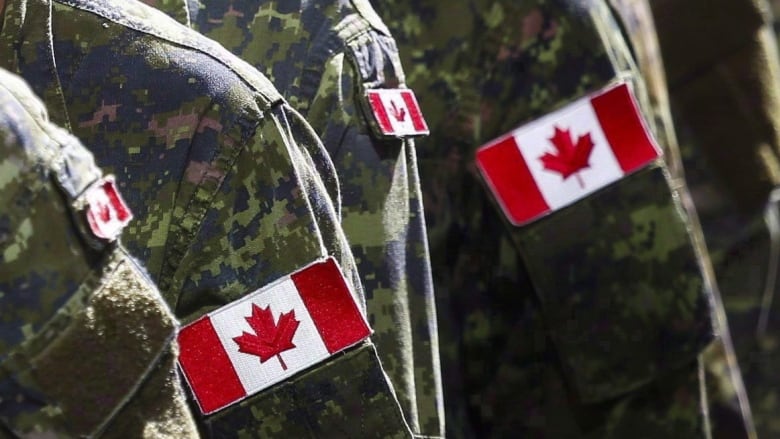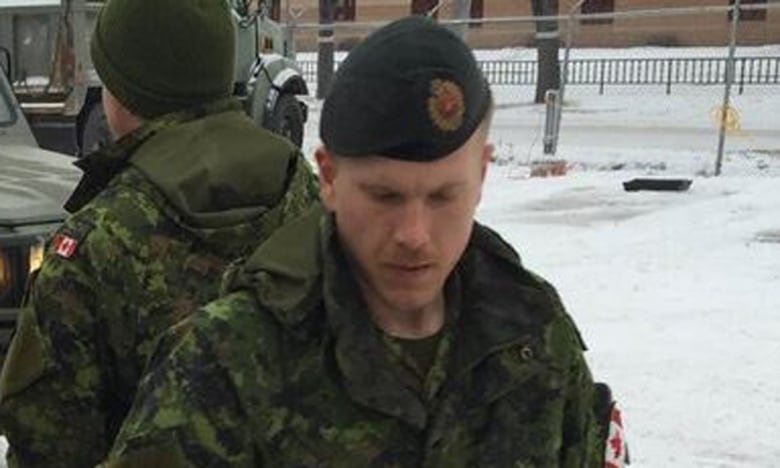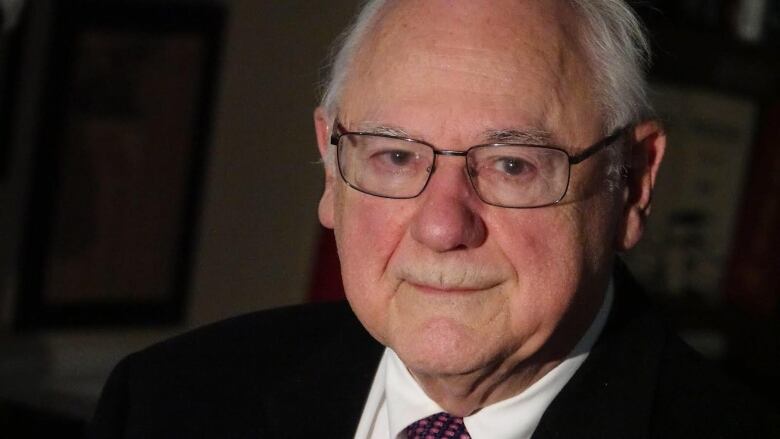Most cases of extremist conduct in Canadian military don't end in discipline, says document
Cases tend to be handled behind closed doors, often with the accused agreeing to leave the ranks

The militaryis dealing with most cases of Canadian Forces members accused of extremism and hateful conduct behind closed doors, without any disciplinary action.
The military doesn't have a specific service offence for hateful conduct, according to a briefing note prepared for Defence Minister Harjit Sajjan and obtained by CBC News through access to information.But the Forces can lay charges through the military justice system or under the Criminal Code which could lead to harshpenalties and publicity.
But thatrarely happens.After CBC News obtained the September briefing note, the Canadian Armed Forces (CAF) provided anupdated list of more than 50 cases of alleged hateful and extremist conduct recorded between 2013-2018. The cases include accusations of white supremacistviews, neo-Nazi commentsand racist or anti-LGBTQ comments.
Lawyer Rory Fowler, aformer military legal officer, analyzed the list and found only four cases involving disciplinary action. Inmany cases, the military didn't even take remedial action. When it did, members often faced official warnings orcounselling and probation. Unlike the procedure for a public court case or summary trial, military administrative measures arekept confidential.
"If the chain of command is trying to denounce this conduct, if they're trying to extend the punishments to achieve a general deterrence, that cannot be accomplished under administrative measures," saidFowler."Administrative measures are not punishment."
The CAFsaid disciplinary actions are initiated only when there are sufficient grounds and enough evidence to justify laying a charge under military or criminal law. The CAF added that administrative measures aren't a slap on the wrist and can have serious career implications. including release from the military.
The military said ithas a zero tolerance policy when it comes to hateful conduct and istaking stock of how it hashandled extremism in the ranks.The move comes after a number of recent high-profile cases including that of former Manitoba army reservist Patrik Mathews, who is currently missing and accused of being a neo-Nazi. A CAF spokesperson confirmed that Mathews' request forvoluntary release was approved and he is no longer a member of the Armed Forces.
In an unprecedented request in August, Sajjan asked Canada's military ombudsman to investigate racism in the Armed Forces.

'Free as a bird, all of them'
As of early December, CAF hadidentified three cases of military members who had beenreleased from service because of hateful conduct.Investigations into seven of the cases found no evidence of wrongdoing. Eight other cases are still ongoing. At least a dozen members were given warnings or counselling and probation.
In 18 cases of alleged hateful conduct, the accused military members received voluntaryor medicalrelease from the Armed Forces. The allegations against theminvolved white supremacistviews, anti-Indigenous and anti-immigration comments, and homophobic statements.
Ottawa lawyer and retired colonelMichel Drapeau specializes in military justice cases. Hesaid that in some instances, simply releasing a CAF memberaccused of hateful conduct from service could be a wayfor the brass to quickly get rid of a problem employee without a lengthy court case.
"Free as a bird, all of them," said Drapeau. "This way, you're out and there's no records of anything. They just let you go."
The CAF said it has the ability to restrict a member's release while it decides if any administrative or disciplinary measures will be taken. The CAF can also arrest and chargeformer members if information is later uncovered about their activities while in uniform.
Details of cases won't be released due to privacy rules
The document contains veryfew details about the cases the military has been dealing with, but some examples include:
- A corporal atGagetown, N.B.having a tattoo of a racist flag removed and therefore not being disciplined in any way.
- Criminal charges pending after an incidentinvolving a member in Saint-Jean, Que. accused of making racist comments.
- Three corporalreservists in Calgary who were accused of being connected toFireforceVentures, an online site selling white-supremacy merchandise including "Rhodesian Army Shirts," Republic of Rhodesia flags and patches. Rhodesia is the colonial name for the modern-day Zimbabwe, which was ruled by a white minority until 1980. One person received counselling and probation, the other two were removed from their unit while an investigation was underway but were not disciplined further.
When CBC News asked for more information about CAF's cases of extremist and hateful conduct, the military said it wouldn't releaseadditional details "in accordance with the Privacy Act."
Fowlersaid that's the problem. When cases are dealt with through the chain of command rather than publicly through the military justice system, it becomes personalinformation and can't be released publicly.
"We don't know why the soldier was released," said Fowler. "We don't have an opportunity for public discourse about the reasons. Equally, the individual who is affected doesn't have the opportunity to have a constitutionally independent judge review that action initially."
Fowler said that,as with sexual assault cases, hateful and extremist behaviour in the military should be dealt with publicly through the military's Code of Service Discipline. According to the updated case list supplied by CAF,there were only two summary trials between 2013-2018. In one of those cases, a corporal made anti-LGBTQ comments,wasfound guilty and given a recorded warning.
Fowlersaid the move appears to linked to the chain of command's dissatisfactionwith the Code of Service Discipline. He said he believes military brass dislike using the code because when a member elects a trial by court martial, it takes longer and requires a higher burden of proof.
Recently-passed legislation,Bill C-77, updates the National Defence Act to reduce the burden of proof needed during a summary trial.
Accused on average have 8 years of service
Drapeauaccused the militaryof "pacifying" the issue of extremism in the ranks, pointing to a passage in the briefing notethat says thecaseload is statistically "very low less than 0.1 per cent of the CAF population were identified and are not considered a security threat." He said Sajjanshould have been given more details about the nature of the allegations.

"It was a clean bill of health to the defence minister," said Drapeau. "When it comes to these kinds of issues, we don't have a problem ... I don't think you want to pooh-pooh it and reduce its significance."
He said it's "significant" that three captains, four sergeantsand two master corporals were listed in the briefing note as having been accused of racist or offensive conduct.
The average length of service for members associated with a hateful or extremist conduct is eight years, butranges individuallyfrom four months to 18 years, according to the briefing note. There were eight incidents linked to members with more than 15 years of service.
"That's shocking," said Drapeau."You'd expect this from newly recruited individuals in their late teens or early 20s [who] haven't learned the discipline yet and haven't learned what you can get away with or not."
CAF says it's training members
Themilitary's legaldepartment,theOffice of the Judge Advocate General, declined CBC's request for an interview.
In a statement, the departmentpointed to a Supreme Court of Canada case from July 2019 that "reaffirmed that the military's justice system is designed to meet the unique needs of the CAF with respect to discipline, efficiencyand morale."
"To maintain the CAF in a state of readiness, the military must be in a position to enforce internal discipline effectively and efficiently."
CAFsaid it has takenmeasuresto properly screen new recruits, and members are educated throughout their careers about the rules on discrimination, hateful conduct and the consequences.
"The chief of the defence staff has made it quite clear that hateful conduct will not be tolerated within the CAF," says the statement.
While the ombudsman's office reviews Sajjan's request for an investigation, the military says it is working internally "to stamp out hateful conduct across the organization."












_(720p).jpg)


 OFFICIAL HD MUSIC VIDEO.jpg)
.jpg)



























































































